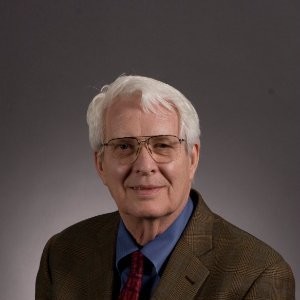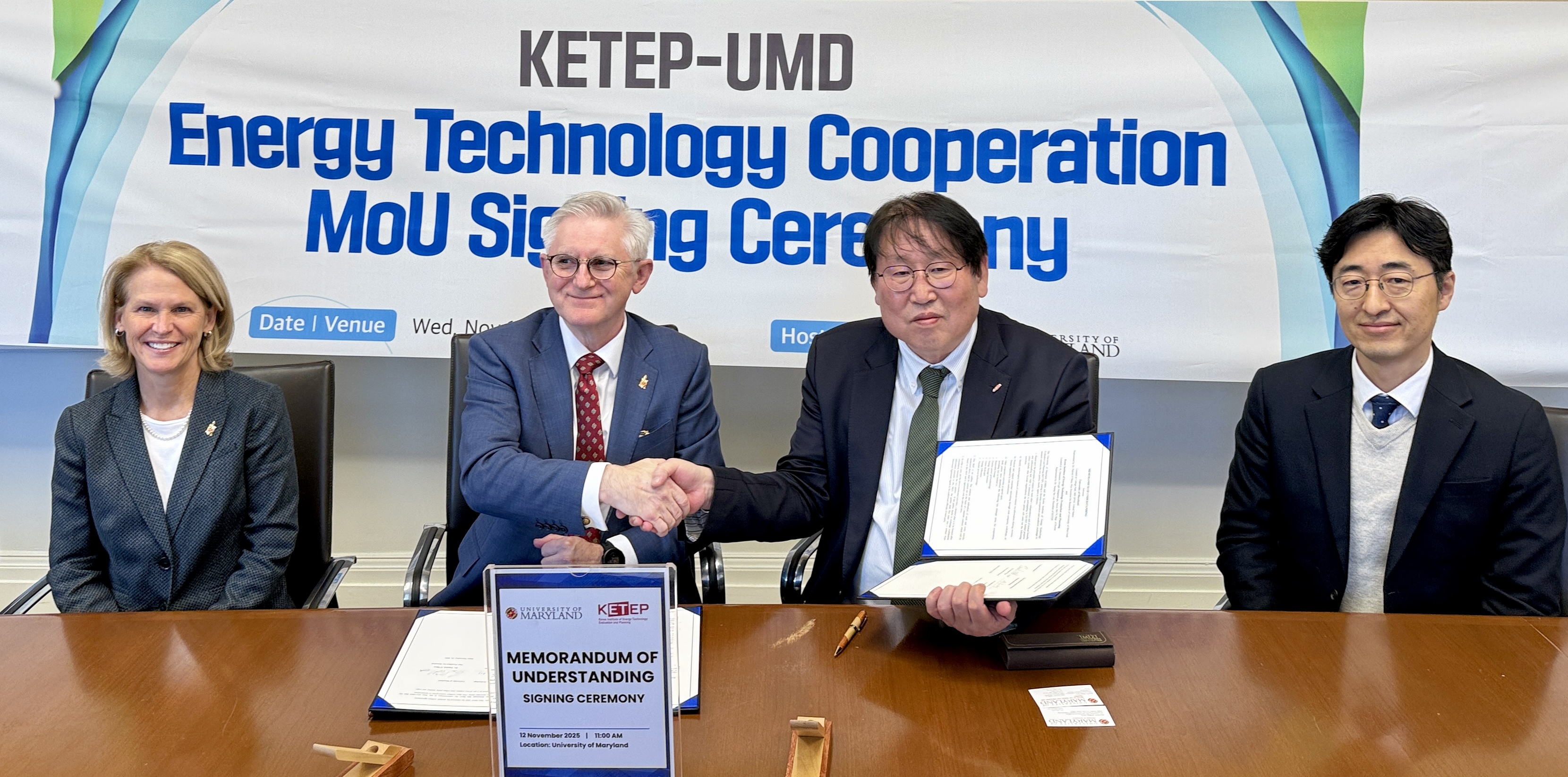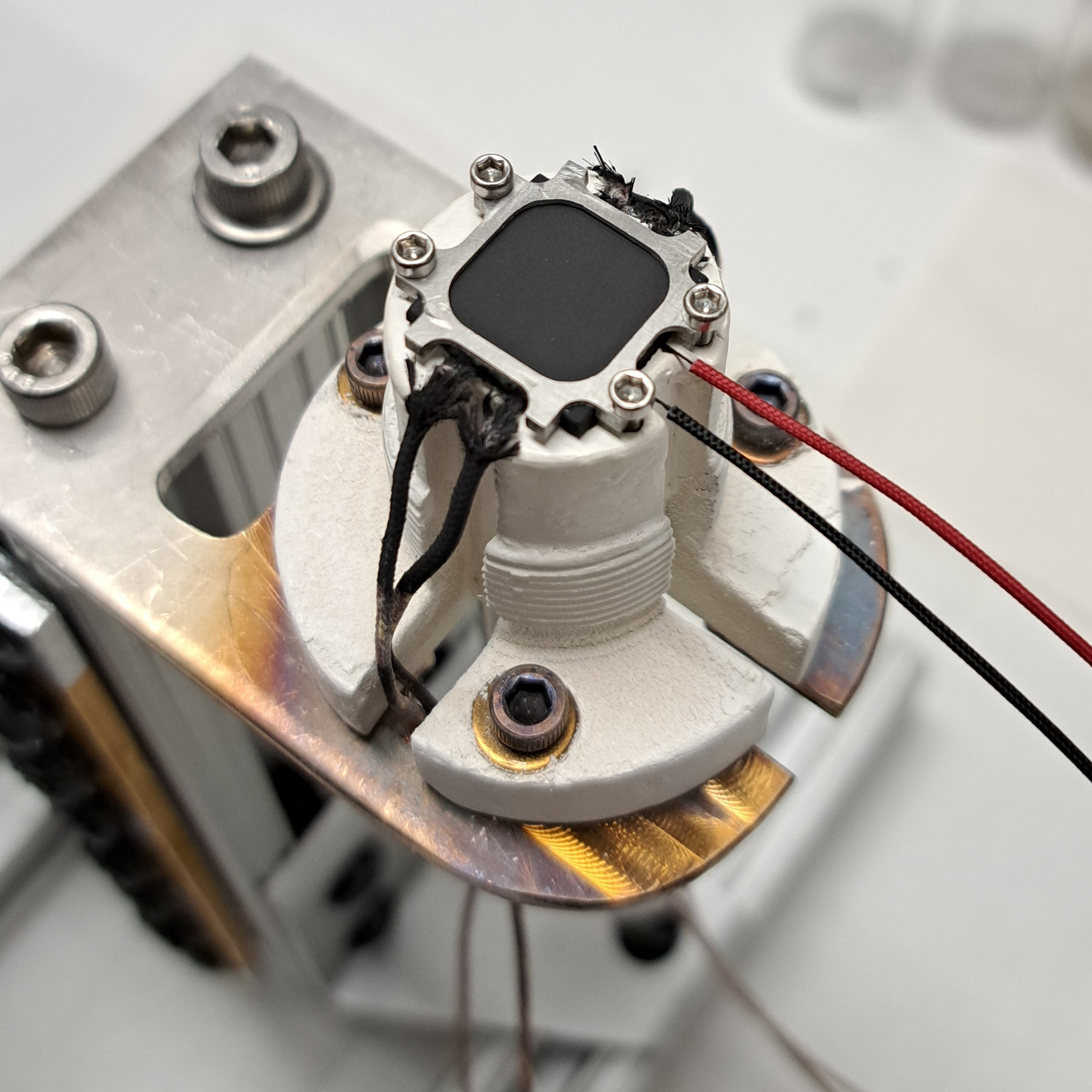News Story
Ned Allen Joins MSE to Aid With UMD/LM Collaborative Effort

Edward "Ned" Allen, Ph.D., recently joined the University of Maryland (UMD) Department of Materials Science and Engineering (MSE) as an adjunct professor. Dr. Allen will be working alongside MSE Assistant Professor, Timothy Koeth, on a major project focused on nuclear electroweak force interactions; essentially, the decay of radioactive isotopes.
“A few years ago, I had a vision that weak force interactions offered a new, fundamentally different way for powering mobile platforms – a new kind of battery," Allen said. "That vision will be key to U.S. leadership in mobile aerospace, ground and ocean systems later this century.”
According to Allen, German physicist Werner Heisenberg recognized one way to visualize the weak force interaction was via the release of energy in unstable atoms by flipping the isospin of its nucleons from up to down, relaxing a proton to a neutron, or vice versa.
“Heisenberg’s interpretation of weak force interactions implied we could build an artificial system of quantum spins in a modern quantum processor programmed to operate, not as a calculator, but as a truly quantum emulation of the fundamental weak force interaction – a nuclear laboratory on a chip,” Allen continued. “There are two kinds of nuclear energy – one from the strong nuclear force that is released in fission and fusion reactors, and one from the electroweak force that is seldom used and rarely at scale larger than a few watts. The most attractive advantages of electroweak fuels are that they can be made inert – non-radioactive – and can produce electrical currents directly, without producing heat, so they can be super-efficient in electric vehicles.”
UMD, with its deep capabilities in nuclear materials sciences and quantum information sciences, collaborating with Lockheed Martin’s (LM) Power portfolio, form a triad uniquely positioned to pursue what the DOE Office of Science dubbed “an exploitable connection between quantum and energy sciences.” So, the goal of the project is a new and dynamic discipline in nuclear chemistry grounded in quantum computers configured into nuclear laboratories; essentially, a new way forward for energy technology.
“The work going on in Professor Koeth’s lab is also very important to this effort,” said Allen, “because we are expecting this new approach, this hybridization of nuclear chemistry and quantum logic, to offer new insights about how the electroweak phenomenon behaves when we actually put it to economic use. The Koeth lab is building physical experiments that will enable us to demonstrate the correctness and fertility of those insights. So, what is required for success here is a cross-disciplinary mix of physical experiments, their more economical quantum surrogates, and the nuclear chemistry that relates them to technology and the new clean and safe energy sources we’re seeking.”
Allen retired from LM in Bethesda in October where he worked as a chief scientist for the last eight years, specifically to focus on this vision. His background is in mathematical systems theory, information theory and linear algebra, which remains his favored approach to ideation and transition of science into technology. Dr. Allen’s capabilities include invention and refinement of enabling technologies and evolving them within mission and economic constraints. He brings a profound knowledge of physics, mathematics, systems design practice, and creativity as well as a keen business sense with him – he’s familiar with formal DOD and commercial development practices, and is an experienced entrepreneur.
Allen has conceived and established more than 13 new product programs for LM including his own commuter airline, which eventually merged into what is known as Horizon Airlines today, and created Daedalus Research Inc.; an unmanned air vehicle research and development firm acquired by LM’s Skunk Works in 1998. With that acquisition, Allen joined LM as senior program manager at Skunk Works. He became chief scientist for Skunk Works in 2002 and a corporate senior fellow in 2007. Over the past decade his work has focused on the development of electroweak-based power supplies for mobile applications.
Over the course of his career, Allen has been a fellow of the Foreign Policy Research Institute, advising the U.S. National Security Council on international technology policy. He taught engineering and public policy at Utah State University, and served as the founding director and technical lead for a public infrastructure financing agency. Allen – who received his Ph.D. in 1970 from the University of Pennsylvania in mathematical modeling of complex systems – holds patents on 30+ inventions. He is currently an American Institute of Aeronautics and Astronautics (AIAA) Fellow and was editor in chief for AIAA’s ‘Library of Flight.’
In addition to assisting Tim Koeth, Dr. Allen, having extensive experience with start-up companies, will also support John Paul Sawyer (UMD Director of Research) with his effort to bolster the UMD entrepreneurial program.
Published November 19, 2020









